Who Is The Richest Man Ever In History
‘Musa I’ of Mali is considered to be the richest man ever lived in human history on Earth. His net worth was recorded to be USD 400 billion in historical times, according to Forbes Magazine.
Definition And Biography
King Mansa Musa was the tenth Mansa and the richest man ever in history, which translates as ‘King of Kings’ or ‘Emperor’, of the affluent Malian Empire. Approximately ten of his ascents to the throne, the Malian Empire comprised of domain earlier having a place with the Ghana Empire and Melle (Mali) and quick encompassing territories, and Musa held numerous titles, incorporating: Emir of Melle and Conqueror of Ghanata.
Musa was alluded to and is most regularly discovered in Western compositions and writing. His name additionally shows up as Kankou Musa, Kankan Musa, or Kanku Musa which implies “Musa, child of Kankou”, where Kankou is the name of his mother. Different plans go ahead as Mali-Koy Kankan Musa, Gonga Musa, and the Lion of Mali.
Mansa Musa Facts
What is thought about the lord of the Malian Empire is taken from the works of Arab researchers, incorporating Al-Umari, Abu-Sa’idUthman commercial Dukkali, IbnKhaldun, and Ibn Battuta. Consistent with Ibn-Khaldun’s far-reaching history of the Malian lords, Mansa Musa’s granddad was Abu-Bakr (the Arabic comparable to Bakari or Bogart, unique name obscure – not the sahabi Abu Bakr), a sibling of Sundiata Keita, the organizer of the Malian Empire as recorded through oral histories. Abu-Bakr did not mount the throne, and his child, Musa’s father, FagaLaye, has no essentials in the History of Mali.
He went to the throne through a practice of designating a delegate when a lord goes on his journey to Mecca or some other try, and later naming the representative as beneficiary. Consistent with essential sources, Musa was designated delegate of the lord before him, who had purportedly left on a campaign to investigate the cutoff points of the Atlantic Ocean, and never returned.
Musa was an ardent richest Muslim man in the world ever and his journey to Mecca, an order appointed by Allah according to the central teachings of Islam, made him well-known crosswise over northern Africa and the Middle East. To Musa, Islam was “a section into the refined universe of the Eastern Mediterranean”. He might invest much time cultivating the development of Islam in his realm.
Wealth
Musa made his journey in 1324, his parade appeared to incorporate 60,000 men, 12,000 slaves, each carrying 4-pound gold bars, envoys wearing silks that exhaust gold staffs, composed steeds, and took care of sacks. This man had furnished all necessities for the parade, nourishing the whole organization of men and creatures. Likewise in the train were 80 camels, which differing reports claim conveyed between 50 and 300 pounds of gold dust each. He doled out the gold to the poor he met along his path. Musa did not just give to the urban communities he passed on the best approach to Mecca, incorporating Cairo and Medina, and additionally exchanged gold for keepsakes. Moreover, it has been recorded that he set up a mosque every last Friday.
Musa’s excursion was archived by some onlookers along his track, who were in amazement of his fortune and impressive parade, and records exist in a mixture of sources, incorporating diaries, oral records, and histories. Musa is known to have chatted with the Mamluk sultan Al-Nasir Muhammad of Egypt in July 1324.
Musa’s liberal movements, then again, coincidentally crushed the economy of the locale. In the urban communities of Cairo, Medina, and Mecca, the sudden deluge of gold downgraded the metal for the following decade. Costs on products and wares are super swelled. To redress the gold market, Musa obtained all the gold he could convey from cash loan specialists in Cairo, at a high premium. This is the main time recorded in history that exclusively specifically regulated the cost of gold in the Mediterranean.
Throughout his long return travel from Mecca in 1325, Musa heard the news that his armed force recovered GAO. Sagmandia, one of his commanders, headed the attempt. The city of Gao had been inside the realm since before Sakura’s rule and was a paramount, however frequently resistant, exchanging focus. Musa made a temporary route and went by the city where he accepted, as prisoners, the two offspring of the Gao lord, Ali Kolon, and Suleiman Nar. He came back to Niamey with the two young men and later well-versed them at his court. The point when he returned, he carried numerous Arabian researchers and designers.
Death Of Musa I Of Mali
The expiration of Mansa Musa was quite wrangled around up-to-date antiquarians and the Arab researchers who read the history of Mali. The point when contrasted with the principles of his successors, offspring Mansa Maghan (recorded administer from 1332 to 1336) and more senior sibling Mansa Suleyman (recorded manage from 1336 to 1360), and Musa’s recorded 25 years of the standard, the figured date of demise is 1332. Different records announce Musa wanted to give up the throne to his offspring Maghan, yet he bit the dust not long after he came back from Mecca in 1325. Further, consistent with a record by Ibn-Khaldun, he was full of vibrancy when the city of Tlemcen in Algeria was prevailed over in 1337, as he sent an agent to Algeria to salute the heroes on their victory.
It is recorded that Mansa Musa voyaged through the urban areas of Timbuktu and Gao on his coming to Mecca, and made them a part of his domain when he returned around 1325. He carried designers from Andalusia, an area in Spain, and Cairo to raise his stupendous castle in Timbuktu and the incredible Djinguereber Mosque that still endures today.
Development And Scholarship
He made a scholarship and financial development program that might proceed into the later middle ages, by reinforcing Mali’s budgetary force and making it an essential erudite focus, drawing in learners from great distances abroad. He had been additionally credited with supporting the liver’s commencement of Sudano-Sahelian construction modeling and the spread of Islam in western Africa. His military fights permitted Mali to turn into the most compelling military on the landmass equaled just by Morocco and Egypt. His most eminent legacy was the hajj which made a budgetary swelling in the Mediterranean as well as may have in a roundabout way supplied fiscal uphold for the Italian Renaissance. His contribution to the heritage, economy, and culture of Africa is tremendously vital and helpful. Thus, he became the richest man in the world ever lived.
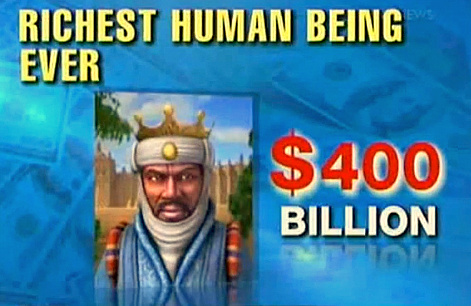

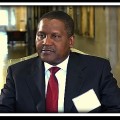
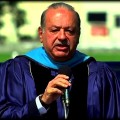
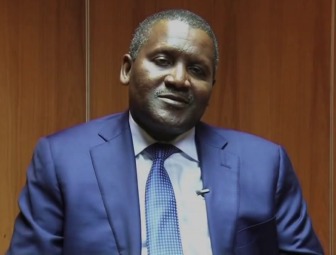
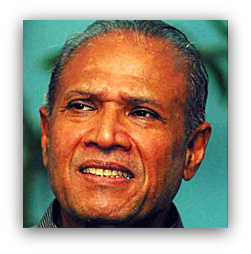

Barbara Arato
October 24, 2015 @ 10:04 pm
Was Mansa Musa born a Muslim or did he convert to Islam? if you could find a more compact way of describing him that might help.
Thank you